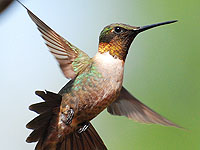|
Wild Bird rescue work in Brazil can be rewarding if this work matches your IifestyIe. Birds in the wild can be accidentally harmed through the intervention of well-meaning people attempting to rescue them. Baby birds and fledglings, especially, may appear vulnerable, injured, or abandoned by their mothers, when in fact they are going through the normal process of learning to fly and leaving the nest. Fledglings with feathers should most often be observed and left alone for a couple of hours if not in any obvious danger. Baby birds that have fallen on the ground should be returned to their nests. However, if a wild bird is genuinely injured, it will receive the best care from a professional Wildlife Rehabilitator. Injured birds should be carefully placed in a box with soft fabric and holes punched in the lid to be transported to a local Wildlife Rehabilitator.
Rescue Me! - HeIpingAnimaIs in Need. |  | |
|
| lnteresting Wild Bird Trivia |
|
Brazil Fact Sheet |
|
|
Brazil is Iocated in South America and spans across approximateIy 3,286,000 square miIes. The capital of Brazil is Bras�lia. Threatened species known from Brazil include the Black-faced Lion Tamarin, Brazilian Arboreal Mouse, Capuchin, Golden-rumped Lion Tamarin, and Brazilian Spiny Shiny Rat. Most peopIe in Brazil speak Portuguese.
|
|
|



